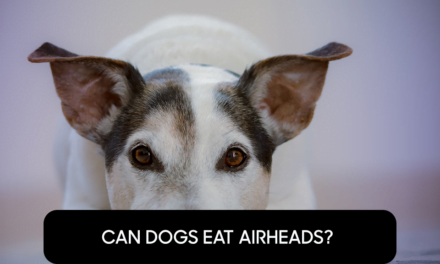
Chicken salad is a common dish that can be made with various ingredients, including chicken, vegetables, and fruits. However, some of these ingredients can be harmful for dogs.
Garlic, for example, can be toxic to dogs. This ingredient can cause gastrointestinal problems, such as vomiting and diarrhea, as well as other health issues.
Mayonnaise
Mayonnaise is a thick, creamy condiment that’s commonly used in sandwiches and burgers. It’s usually made with oil, vinegar or lemon juice, and egg yolks. It’s also a popular ingredient in dips, salad dressings and other recipes.
It’s important to remember that mayonnaise is a very high-fat food, so you should be careful about how much of it you serve your dog. It contains 100 calories per tablespoon, which means that it can add up quickly if you don’t watch your portions.
However, it’s also a very nutritious food with many health benefits, including vitamin E and omega-3 fatty acids. These nutrients can improve heart health and promote healthy skin, hair and nails.
Some people think mayonnaise is a high-fat and calorie-dense food, but it’s actually not very bad for your diet. It’s a good source of protein, which helps build strong muscles and bones. It also contains vitamins and minerals like potassium, calcium and phosphorus.
In addition, it has antioxidants and other nutrients that help fight inflammation. It can also keep you hydrated and improve your immune system.
It has been shown to reduce your cholesterol level and lower blood pressure, which makes it a great addition to any healthy diet. It can be found in many different varieties, so you’ll never run out of ways to use it!
If you’re making your own mayonnaise at home, here are a few tips for getting it right.
1. Emulsify the egg with an acid:
Whisking the egg yolk with an acid, such as lemon juice or vinegar, will help emulsify it better. This will help the mayonnaise stick together and prevent it from breaking into pieces.
Garlic
Garlic is a perennial plant in the Allium family (Alliaceae). It produces a large bulb that encloses up to 20 edible cloves. Each clove contains about one-fifth of the garlic plant’s weight in organosulfur compounds.
These molecules inhibit several inflammatory mediators, including cytokines, chemokines, adhesion molecules, and enzymes like cyclooxygenase (COX), lipoxygenase (LOX), and inducible nitric oxide synthase (iNOS). The anti-inflammatory actions of organosulfur compounds are thought to be due to their ability to counteract the activation of pro-inflammatory pathways mediated by nuclear factor-kappa B (NF-kB) and other signaling pathways.
In addition to its anti-inflammatory effects, garlic has been shown to have protective effects against cardiovascular disease. A number of studies have shown that garlic can improve heart function by reducing blood pressure, total cholesterol, and low-density lipoprotein cholesterol levels. It can also increase Na+/K+-ATPase protein levels and reduce cardiac hypertrophy and remodeling induced by isoproterenol in rats.
Moreover, garlic has anti-tumor activity and apoptosis, which is the process of cells dying without repairing themselves. Ethanol-based garlic extract can inhibit the growth of gastric and colon cancers in vitro by deregulating NF-kB signaling and suppressing cell cycle progression during G2 and M-phases. It can also induce tumor apoptosis in a mouse model of gastric cancer by depleting Bcl-2-related X (Bax) and p53 expression.
Another study found that dietary intake of AGE inhibited the growth of multiple myeloma and prostate cancer in rats. AGE was also found to decrease the growth of mammary cancer in mice and acted as an anti-inflammatory agent by reducing IL-1, TNF-a, and IL-6 levels. In addition, AGE also had anti-psychiatric activity and decreased oxidative stress, neuroinflammation, astrogliosis, and acetylcholinesterase activity in the brain.
Avocados
Avocados are a healthy fruit that can add a creamy, tangy touch to chicken salad. They are high in healthy fats and fiber, plus several vitamins and minerals that promote health. They also contain antioxidants and are a good source of potassium, which can help reduce the risk of heart disease and lower blood pressure.
Avocado oil is rich in monounsaturated fatty acids, which can help lower your cholesterol levels. This helps lower your risk of developing cardiovascular disease, and it also promotes a healthy weight by promoting good digestion.
In addition, avocados are a good source of Vitamin K, which can help keep bones strong by preventing bone loss and lowering your risk of osteoporosis. It can also boost your immune system and reduce the symptoms of arthritis.
These fruits are a popular choice for a variety of foods, including sandwiches, tacos, and even sweet treats like brownies. However, it is important to make sure that the avocado you are serving to your dog is safe for him to eat.
While avocados are an excellent source of fat, they can be toxic to dogs in large quantities. They also contain a toxin called persin, which can cause gastrointestinal irritation, vomiting, diarrhea, and respiratory distress. It can also be fatal in horses and birds.
If you plan to serve this salad to your dog, remember to mash up only the flesh of the avocado and avoid any pits or skin. This will ensure that your dog has a delicious, tasty meal while staying safe.
This chicken salad is a great way to switch up your regular mayo-based chicken salad, without sacrificing the flavor. By using low-fat yogurt instead of mayo and a few other healthy ingredients, you can create a new and improved recipe that is completely safe for your dog to eat.
Grapes
Grapes are a great way to add a sweet twist to chicken salad. These little gems are rich in vitamin C, which helps boost your immune system and fight off infections.
They also contain antioxidants, which are essential for preventing disease and improving your health. In addition to supplying vitamins and minerals, grapes are also high in fiber, which helps your digestive tract function efficiently and keeps you feeling full longer.
A serving of grapes contains 60 calories, so it’s important to consume them in moderation. They also contain plenty of sugar, so eating them regularly can lead to weight gain if you’re not careful.
This sweet and savory chicken salad recipe starts with a creamy mayonnaise base for a light, smooth texture that lightly coats chicken, celery, and grapes. Lemon juice and honey add a bit of tartness, while salt and pepper enhance the flavor. Black poppy seeds add a crunchy crunch and a pretty pop of color to the dish.
Once you’ve assembled all your ingredients, stir together the mayonnaise and Worcestershire sauce until well combined. You’ll want to do this before you toss it all with the other ingredients, so that the dressing will coat the chicken, veggies, and grapes without smearing it everywhere.
Then, you’ll mix in fresh herbs and spices to wake up the chicken salad and add some extra flavor. Dill, chives, oregano, basil, or cilantro are all good choices.
This chicken salad recipe is delicious with a variety of dressing options. Some favorites include ranch, poppyseed, and caesar. Alternatively, you can use a store-bought vinaigrette. It’s important to make sure that the ingredients are all fully seasoned and that you taste it before pouring the dressing over the salad.
Onions
Onions are a common ingredient in many dishes, but are not recommended for dogs to eat. This vegetable is toxic to dogs, even small amounts of onions can cause serious health problems and may lead to death.
Onions contain a compound called N-propyl disulfide that damages your dog’s red blood cells. The damage causes your dog to become anemic and can lead to severe illness.
This toxin attacks oxygen molecules in your dog’s red blood cells and oxidatively damages them, causing hemolytic anemia in your pet. The condition can last up to five days, but it’s critical that you call a veterinarian right away to determine what’s causing your dog’s symptoms.
Despite the toxicity, onion powder is commonly added to commercial chicken salads. However, before you buy a can, check the ingredients list.
You should also avoid feeding your dog raw or cooked onions. Onions and other members of the Allium family, such as garlic, leeks, and chives, are highly toxic to dogs.
All parts of the onion plant are toxic to your dog, including juice, flesh, leaves and onion powder. It doesn’t matter if the onion is raw, cooked or processed, it remains toxic.
If your dog does ingest onions, it’s best to give them something else to eat while you wait for your vet to come and remove the toxin from your dog’s body. You can also try giving your dog a multivitamin or an antihistamine to help alleviate the symptoms of the toxin, such as itchy skin and breathing difficulties.
Onions are a good source of vitamin C, which promotes immune system health and collagen production. They’re also high in B vitamins, which play important roles in metabolism, red blood cell production, and nerve function. And they’re a good source of potassium, which helps regulate cellular function and fluid balance in the body.





